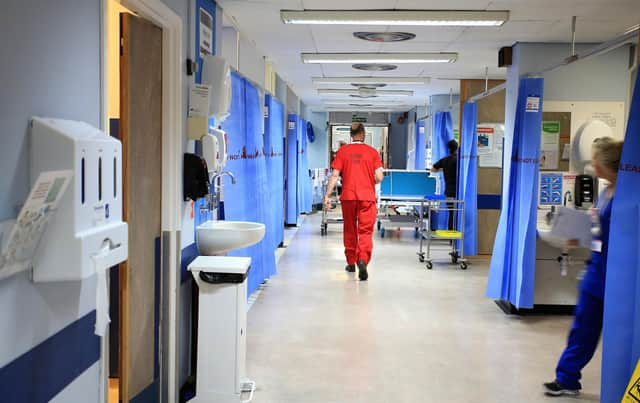Solicitors accused of coercing vulnerable hospital patients into signing legal documents


The safeguarding team at Leeds Teaching Hospitals NHS Trust (LTHT) said solicitors have walked onto wards and with people who claim to be a patient’s relative and coerced them into signing documents.
An email sent to staff at the trust said there had been a number of incidents.
Advertisement
Hide AdAdvertisement
Hide AdIt said: “LTHT Adult Safeguarding have been alerted about incidents whereby solicitors are attending wards (with persons alleging to be patient relatives) and coercing patients who do not have the capacity to consent to signing documents.
“All staff have a duty to challenge anyone attending a ward who does not have a valid reason to be there, or who staff feel are not acting in patients’ best interests.”
Helen Christodoulides, Deputy Chief Nurse at the trust, said: “We have robust and well embedded safeguarding processes within the Trust.
“Through these we were alerted to two unrelated incidents where ward staff were concerned that legal paperwork was being discussed with patients in our care deemed not to have capacity to take part in these discussions.
Advertisement
Hide AdAdvertisement
Hide Ad“We’ve contacted the families of those affected and raised the issue with relevant staff.
"We have also raised this concern with appropriate external authorities and our partners.”
The NHS trust runs several hospitals, including Leeds General Infirmary and St James's University Hospital, but has not revealed where these incidents occurred.
A spokesman for the Solicitors Regulation Authority said: “Solicitors have an obligation not to take advantage of clients or others, and should not make approaches to potential clients without being invited.
Advertisement
Hide AdAdvertisement
Hide Ad“If the hospital trust or anyone else has evidence of solicitors doing this, we would urge them to report it to us.”
The regulator recently published guidance for solicitors dealing with clients who do not have capacity to make decisions.
It said they can accept instructions provided by a third party acting on behalf of a client “if the individual providing those instructions has the legal authority to do so” and must always act in the best interests of that client.
The NHS states that a person lacks capacity if their mind “is impaired or disturbed in some way” and this can be caused by conditions such as dementia, brain damage, mental health issues and learning difficulties.
When there is a dispute about what is in an incapacitated person's best interests, healthcare professionals can refer the case to the Court of Protection.